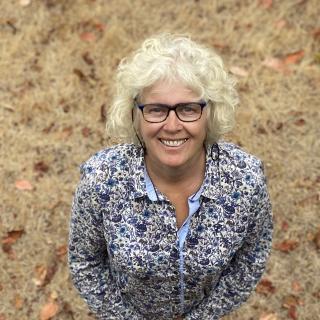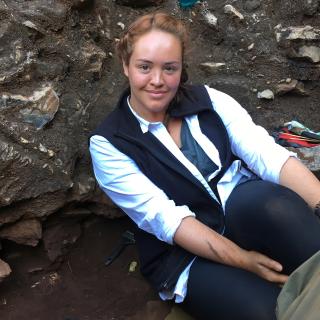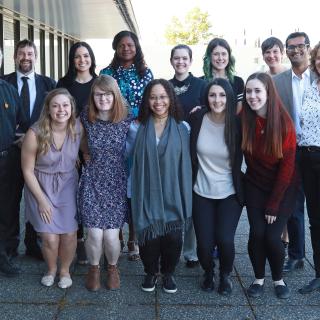A VIU Ethnoarchaeology research project brings the past to life through the re-creation of ancient-inspired ales hailing from ancient Egypt, Mesopotamia and Scandinavia.
Digging up centuries-old artifacts to study human activity may not appeal to everyone, but a Vancouver Island University (VIU) Professor and an undergraduate student have found an engaging way to bring the ancient past to life.
“I am an Ancient Near Eastern archaeologist, working in the home of early civilizations in the area now known as Turkey, and my field of work has focused on Mesopotamia,” says Dr. Marie Hopwood, VIU Archaeology Professor. “I needed to find a way to make Mesopotamia relevant to my students and the general population and I was able to do that through beer.”
Hopwood and Anthropology undergraduate student Melissa Ayling, along with community partner Dave Paul, owner of Love Shack Libations, created two ancient-inspired ales to share some of the origins of this artisanal craft and what it meant to communities centuries ago.
“Beer is one of the oldest drinks humans have produced that is consumed by all social classes,” says Hopwood. “In fact, a 5000 BCE Mesopotamian beer rations tablet from the city of Uruk contains some of the earliest writings about beer.”
“Our project was inspired by archaeologist Patrick McGovern’s book Ancient Brews: Rediscovered and Recreated,” says Ayling.
McGovern partnered with Dog Fish Head Brewery in Delaware, USA, to re-create beers based on the chemical residues he recovered and analyzed from archaeological pottery.
“We are using McGovern’s work to create conversations about the past in a way that shows how ancient people were people just like us,” adds Ayling. “A cornerstone of our project became how community and brewing are linked, especially small-scale brewing.”
Hopwood, Ayling and Paul brewed two ancient-inspired ales: Midas Touch and Odin’s Eye.

Midas Touch was inspired by a funerary drink for King Midas, as well as an early Mesopotamian beer recipe.
“It’s a hybrid of two of the earliest brewing traditions from ancient Egypt and Mesopotamia,” says Hopwood. “The honeyed ale is brewed from two ancient ingredients – an ancient wheat known as kamut, as well as spelt. We then flavoured it with coriander and a decadent amount of saffron, suitable to King Midas’ own tastes.”
Odin’s Eye, a dark ale flavoured with birch bark and syrup, lingonberries, bog berries (aka cranberries), meadowsweet and yarrow was inspired by a Viking-era grog.
Through their experimental archaeology project, the researchers learned about the impact small-scale, home-based brewing had on communities and how it contributed to the social makeup of their societies. Beer was used as currency, paid out as wages, traded and offered to the gods in addition to being consumed as a health supplement.
“Perhaps one of the most surprising facts to most people is that beer was primarily crafted by women,” says Hopwood. “The women were responsible for supplying both bread and beer for the household and also in large quantities for celebrations. Even some of the first deities linked to beer were women, such as Ninkasi the ancient Sumerian goddess of beer.”
Midas Touch and Odin’s Ale are available for a limited time at Love Shack Libations in Qualicum Beach.
Hopwood and Ayling will present their findings at the Society of Archaeology conference in New Mexico in April. There are also plans to craft an Incan Chicha made from organic Peruvian purple corn.
“My main goal in archaeology is putting faces onto our understandings of the people of the past,” says Hopwood. “Archaeology in of itself is destructive. Once you excavate it, you can’t put it back. Ethically, as archaeologists, we are responsible to help our audiences imagine what the past looked like, and beer is one of the ways that does that. I am hoping we can create connections and celebrate the humanity of the past that helped bring us this ancient elixir of awesomeness.”
Photo Caption: Anthropology Student Melissa Ayling & Anthropology Professor Dr. Marie Hopwood. Odin’s Eye & Midas Touch. Photo Credit: Vancouver Island University
-30-
MEDIA CONTACT:
Annette Lucas, Communications Officer, Vancouver Island University
O: 250.741.2020 | C: 250.618.7296 | E: Communications@viu.ca





